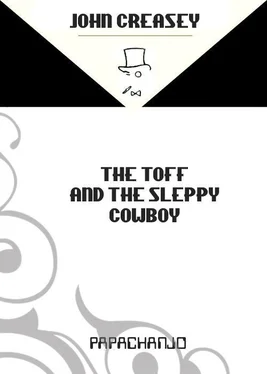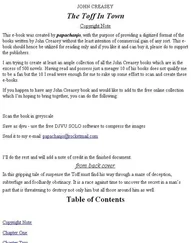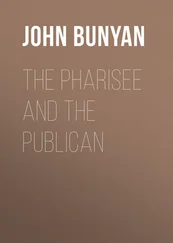John Creasey - The Toff and The Sleepy Cowboy
Здесь есть возможность читать онлайн «John Creasey - The Toff and The Sleepy Cowboy» весь текст электронной книги совершенно бесплатно (целиком полную версию без сокращений). В некоторых случаях можно слушать аудио, скачать через торрент в формате fb2 и присутствует краткое содержание. Жанр: Старинная литература, на русском языке. Описание произведения, (предисловие) а так же отзывы посетителей доступны на портале библиотеки ЛибКат.
- Название:The Toff and The Sleepy Cowboy
- Автор:
- Жанр:
- Год:неизвестен
- ISBN:нет данных
- Рейтинг книги:5 / 5. Голосов: 1
-
Избранное:Добавить в избранное
- Отзывы:
-
Ваша оценка:
- 100
- 1
- 2
- 3
- 4
- 5
The Toff and The Sleepy Cowboy: краткое содержание, описание и аннотация
Предлагаем к чтению аннотацию, описание, краткое содержание или предисловие (зависит от того, что написал сам автор книги «The Toff and The Sleepy Cowboy»). Если вы не нашли необходимую информацию о книге — напишите в комментариях, мы постараемся отыскать её.
The Toff and The Sleepy Cowboy — читать онлайн бесплатно полную книгу (весь текст) целиком
Ниже представлен текст книги, разбитый по страницам. Система сохранения места последней прочитанной страницы, позволяет с удобством читать онлайн бесплатно книгу «The Toff and The Sleepy Cowboy», без необходимости каждый раз заново искать на чём Вы остановились. Поставьте закладку, и сможете в любой момент перейти на страницу, на которой закончили чтение.
Интервал:
Закладка:
Rollison found himself singing to the second rendering:
“Come to the cookhouse door, boys; come to the cookhouse door.”
The men and women in the crowd swung round and a man shouted: “There’s Rollison!” Another called: “There’s the Toff!” Others called out, many ran and cameras flashed. Ebbutt slid out of the driver’s seat on his errand. Soon questions were being flung at Rollison.
“Were you at Rubicon House?”
“Did you know she was going to have a baby?”
“Had you ever seen her before?”
“Was it an attempt to kill you, Toff?”
“Have you seen her since the baby was born?”
“Bill!” called Rollison in a tone which could be heard by nearly everyone present, “give one long blast on your horn, will you?”
“Glad to,” Ebbutt said, and immediately the horn hooted a hoarse, low-pitched sound which cut across the questions, silencing everybody. Then it wailed into silence itself, and Rollison raised his voice:
“I’ve no time to answer questions but I’ll make a statement. Ready?” After a chorus of ‘we’re ready’ and ‘fire away’, he went on: “I went to Rubicon House to look for a character actor named Alec George King, who lives there. I did not know him or his wife, Effie. King wasn’t there and I believe he’s in acute danger — of losing his life. Every newspaper must have a picture of him somewhere in its files. I don’t give a damn what you say about me provided you make everyone realise I want to see this man — urgently.”
“What do the police say?” a man called out. “They can’t act on this, yet.”
“Do you think King started the fire?” a man demanded.
“Did you start the fire?” another called.
“No, to both,” Rollison said. “The man or woman who started the fire was medium size, and King is six feet seven. The man or woman rode a motor-cycle, and wore a stocking mask. I can’t tell you anything about the man who started the fire but I can tell you about Alec George King.” He paused for a moment and then called: “Is there anyone here from the Globe?”
“Yes — I am!” a tall, fair-haired man showed clearly in the street lamplight.
“Is your name Stevens?”
“No — we’ve no one named Stevens on the paper.”
“Check at your office for me, will you?” asked
Rollison. “A man purporting to be from the Globe —”
“Mr. Ar!” bellowed Ebbutt, fear overcoming the hoarseness of his voice, “look out!”
A policeman shouted: “He’s throwing a bomb!”
Rollison saw the crowd freeze, momentarily, except for two policemen and a man on the pavement, whose right hand was raised in the act of throwing. For an awful moment it seemed as if most of those present were mesmerised by fear, but suddenly there was a wave of movement from the car; the crowd seemed to billow and sway rather than turn and run.
In the half-light, Rollison could see the dark spheroid in the air, curving an arc towards him and the Model T. He dared not take his eyes off it; dared not look to see if the man had turned and run once he had hurled the bomb. Rollison felt sure it would be a hand grenade, which would explode on contact with car or road. He had never been nearer to death. He stepped down from the running board and cupped his hands, fully aware that if he caught the grenade it might blow up in his hands.
He caught it.
It did not go off instantly.
With great deliberation he drew back his arm and threw the grenade towards the empty house; and he had never been nearer praying. No one was close to the spot, but if it exploded outside it could do unspeakable harm.
It crashed through the window.
A split-second later, it exploded.
14
Capture
ROLLISON WAS AWARE only of one thing: the flash of the explosion and the strange shape of the star-like hole which appeared in the window. He threw himself down, covering his head with his arms, and heard the roar and felt the blast. He was lifted bodily, but only a few inches. He heard the thudding and cracking of glass, mortar, pieces of brick and wood which fell into the street; one fell, lightly, on the small of his back; another, sharper, hit the fingers of his right hand.
The sounds all merged into one; a kind of roaring.
He only knew that the bomb had not exploded among people, among the reporters, that it had caused as little damage as possible; that he was alive.
He was oblivious of everything else; of the man who had thrown the bomb, for instance. And what happened in Gresham Terrace on that long-to-be-remembered night was seen by different people in different little silhouettes; none saw everything, but the picture of all that had happened was formed when every segment was put together.
* * *
Jolly at one window, Pamela Brown and Tommy G. Loman from another, saw a foreshortened view. The sudden shouting had drawn them to the windows and Loman had been the first to fling one up, momentarily ignoring Pamela. Then she was beside him and they squeezed together, Tommy’s long arm about her. They peered out, hearing Rollison’s clear statement and his answers to the questions, seeing the crowd, sensing a mood of some hostility. Then the policeman had shouted:
“He’s throwing a bomb!”
They saw the curious way the crowd seemed to sway back for the Toff, they watched as if hypnotised as the Toff caught the missile and, without a thought of nerves, threw it towards the empty house.
“Oh, God!” breathed Pamela.
Then Jolly cried: “Stop him, stop him!”
Tommy G. Loman looked away from the Toff and the bomb as the explosion flashed and roared, and saw a man pushing his way past two or three others, and saw, suddenly, a motor-cycle between two parked cars.
“Stop that man!” roared Tommy G.
“Stop him!” cried Jolly.
Pamela made herself look away from Rollison, who was flat on the ground, towards the man. Tommy was roaring: “Stop him, stop him!” and clutching her more tightly than she had ever been held in her life.
Two men broke from the crowd.
One was a policeman and the other was Ebbutt’s man on that side of the street. The escaping man was only a few yards from the motor-cycle. He leapt towards it, straddled the seat and kicked the starter, but before he could move the machine Ebbutt’s man was leaping at his back and the policeman pulling at his arm, until he was half on and half off the saddle. Motor-cycle and would-be rider collapsed against a car.
When all three men stood up the motor-cyclist was handcuffed to the policeman.
That was the moment when Tommy G. realised that his great hand was cupping Pamela’s breast, not clutching her waist. It was the moment, too, when Pamela placed her hand over his as if to keep it there. And it was the moment when Jolly said in a trembling voice:
“Thank God he’s all right. Thank God.”
He meant Rollison, of course, who was being helped to his feet.
Yellow light from the fire already burning fiercely in the empty house shone on his face, making strange brilliance and dark shadow.
* * *
The television cameraman who wheedled his way into getting permission to install himself on the porch of a house had bemoaned his luck until the shout: “He’s throwing a bomb!” The veering crowd, the movement of Richard Rollison from the running board of the T-model Ford, all came within his line of vision. He had special lights and highly sensitive film, and simply kept his finger on the ‘take’ button and the lens on Rollison.
He saw the explosion in vivid if miniature brilliance.
He saw Rollison moving like a Lilliputian, throwing himself down.
He heard the shouting: “Stop him!” and swivelled the camera and took pictures of the running men. They had disappeared from sight when he ran out of film, but he had so much that he could have danced for joy.
Читать дальшеИнтервал:
Закладка:
Похожие книги на «The Toff and The Sleepy Cowboy»
Представляем Вашему вниманию похожие книги на «The Toff and The Sleepy Cowboy» списком для выбора. Мы отобрали схожую по названию и смыслу литературу в надежде предоставить читателям больше вариантов отыскать новые, интересные, ещё непрочитанные произведения.
Обсуждение, отзывы о книге «The Toff and The Sleepy Cowboy» и просто собственные мнения читателей. Оставьте ваши комментарии, напишите, что Вы думаете о произведении, его смысле или главных героях. Укажите что конкретно понравилось, а что нет, и почему Вы так считаете.












